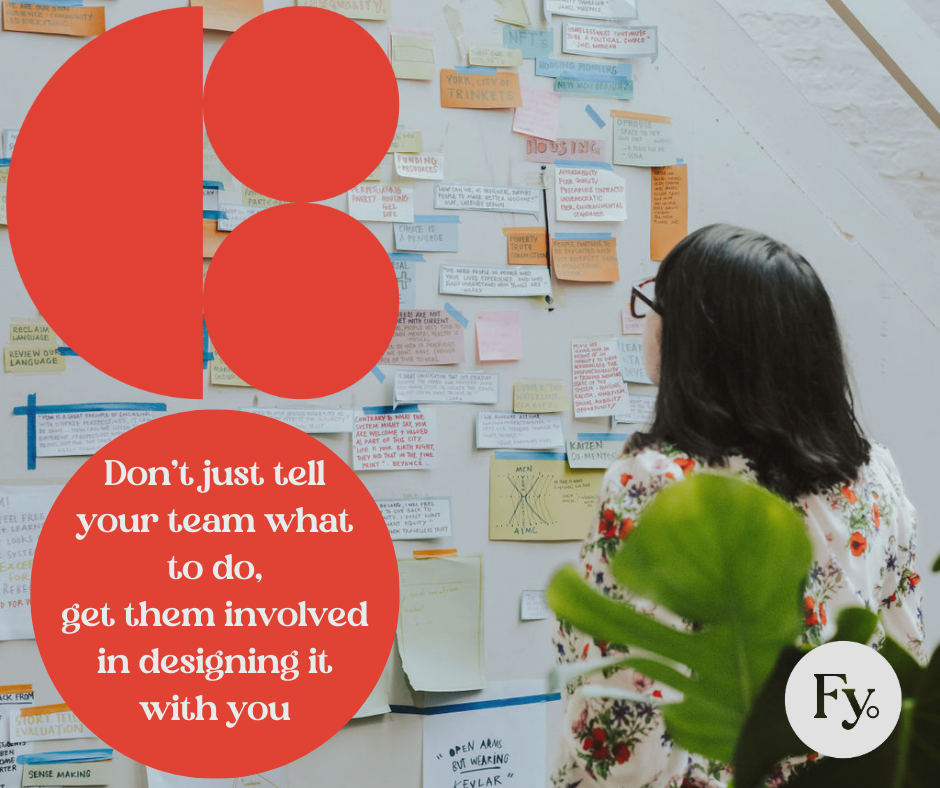
What is culture?
Culture is, ‘the customary beliefs, social forms, and material traits of a group of people’. Put more Frankly… it summarises, the ‘way things get done around here’. This can be both intentional (employee handbook, policies for example) and unintentional (office habits that form to get stuff done), which may or may not be aligned to the intended culture.
Most organisations don’t set out what kind of culture they want. But every organisation will have a culture. It’s palpable when you walk in the offices or workplaces. A feeling, a sense, an environment, an energy.
Culture as a whole is made up of the following parts*;
- Controls – systems, processes, policies, rules, boundaries that support the health of a business eg finance processes, HR policies, quality assurances
- Symbols – visual aspects of an organisation’s characteristics eg the logo, the dress code, the offices
- Stories – the events get shared inside and outside of an organisation around their success and failures. Including who are the hero/heroines?
- Organisational structure – how are you organised and whose contributions are most valued?
- Rituals and routines – behaviours, rules of engagement. These can be both what’s expected to happen and what gets valued my management (and they may or may not be the same)
- Power structures – where do the pockets of real power and influence reside particularly around making decisions, operations and setting direction. This can also include social power.
Why can it feel tricky?
In a nutshell, working on developing cultures can feel tricky for two or three reasons. The main two are people and change.
- People – Let’s take the first one; people. Culture is largely about humans working together which means we’re exploring the realm of how humans belong in groups. This can bring up all sorts of tricky dynamics particularly around inclusion, belonging, safety, love, feeling valued. You can’t look at culture and ignore human psychology.
2. Change – The second point is that developing cultures requires change and change can also bring up tricky stuff, both at an organisational level and individual level. What’s the organisations relationship to change? Do you do it well? Does management decide and tell the rest of the business? Do they avoid it? Do they focus on what’s easy and more manageable or face into the trickier but transformative stuff?
3. Tricky characters – And there is a third aspect that came make developing cultures tricky and that is ‘significant personalities’. Nearly every organisation has at least one. They’re often part of the management team somewhere and they can make cultural change a tricky process indeed!
Why does it often get neglected or reduced to policy management?
Cultural change can range from the administrative (policies and procedures) to the transformational (organisation wide engagement & organisational development). The former is easier and quicker to get ticked off a to do list and requires less stakeholder management and approval.
The latter? Way more workload and complexity for everybody. BUT… the rewards, when done well, are worth it. People largely leave organisations not because of pay and perks but because of culture and management. Cultural evolution can be fun, exciting and motivating work and it most definitely underpins the performance of an organisation.
Consider an organisation with no energy or intention on its culture with average working conditions. Most likely over time, office gossip starts, then a decision gets made my management and is shared (with little or not consultation). Office gossip increases, but now trust is even lower. Gossip turns to passive aggression which turns to time striking and reduced productivity. More energy is put into speculating and assuming than delivery and working together.
Most organisations pay way too much attention to TASK and way too little attention to RELATIONSHIP and WAYS OF WORKING. Or worse still culture gets left to the middle management tier to ‘oversee’ at a ground root level which means that mini cultures pop up across the different teams. I tend to find if you crack the two latter (relationship and ways of working) the task usually follows with minimum need for intervention.
How do you go about enhancing culture?
There are some simple steps you can take to care for your culture
- Make a commitment to look lovingly at your existing culture – I definitely recommend using an external person for this. You need neutrality and to create psychological safety for your people to be open about what’s working and what isn’t
- Align where you are with the future intentions of the business – if you don’t have a vision, future goals or definition of healthy workplace, I’d suggest making a pit stop to get that sorted. Again a facilitated process with an external consultant will make this process more enjoyable and effective in the long run due to their neutrality to your organisation
- Prepare yourself and your leaders to ‘get real’. There are skills as individual leaders and as a team that you need to be encouraging if you want to make the most of your culture. Openness, Trust, Honesty, Constructive feedback, Deep listening, Good open question skills, Managing your triggers, Vulnerability and courage. Do some development work on your selves and your team before embarking on this process to set you up for success
- Engage the entire organisation in the process. If you want the culture to be shared and held lovingly and respectfully by everyone, let all your people have a say in what needs to be different.
- Establish a culture committee with full representation across all levels and teams and have it report to the board. Better still, give culture a seat and a say at your board meetings. Action learning is a great tool to support culture committee work.
- Make it a regular part of your review process (121’s, performance reviews, team meetings, end of year review) so it becomes normalised to discuss it.
- Decide on a company approach to change; do you want to cultivate more collaboration? A more relational approach? A more creative approach? Agree your process then experiment test learn and adapt.
- Make change micro as well as macro. Taking more of an agile approach to cultural evolution will ensure it feels overwhelming than if it’s a big piece of work that happens once a year then gets tucked in a drawer.
- Have fun with it, get creative, use nature for inspiration, integrate it with your team meetings.
- Monitor and celebrate.
*Taken from Johnson Scholes Culture Web




